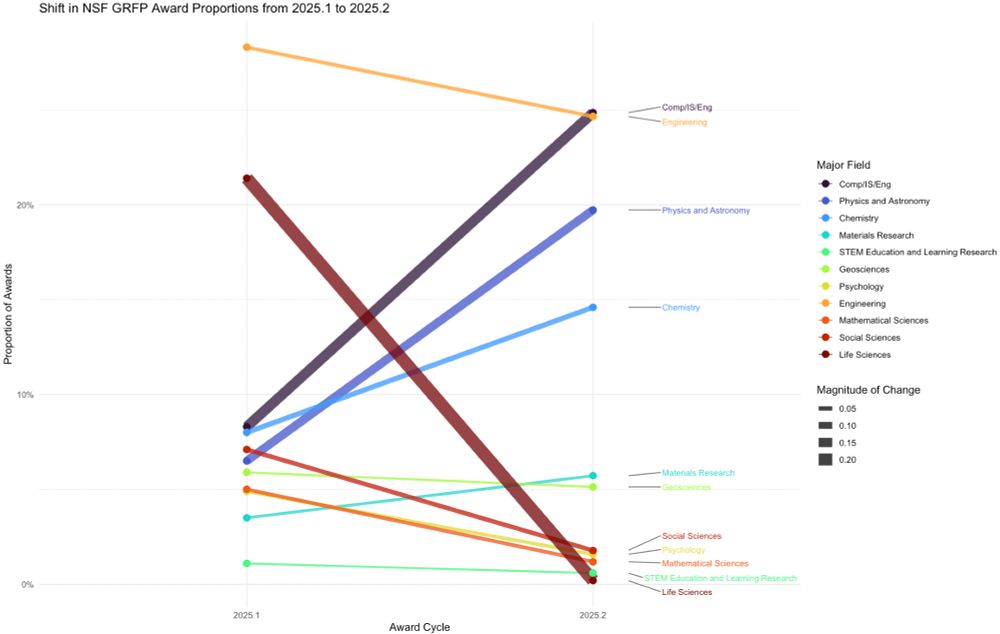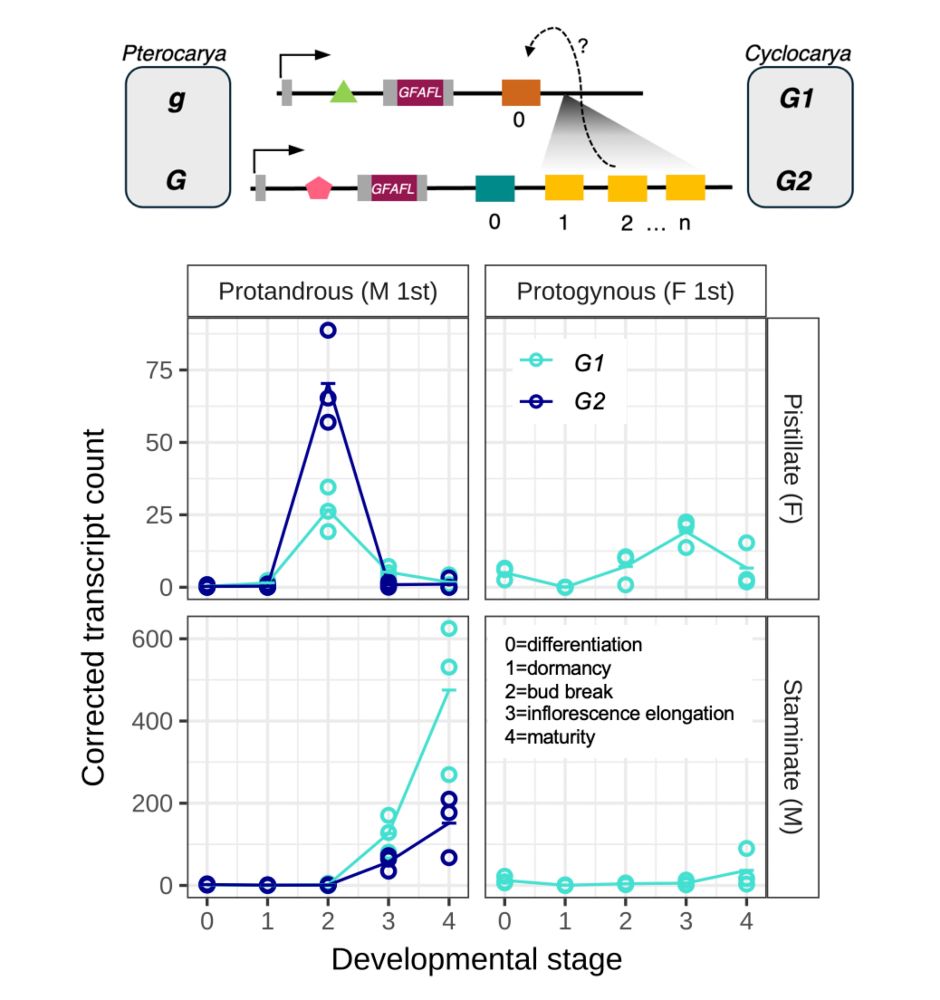Jeff Groh
@jeffgroh.bsky.social
Postdoc at UC Berkeley | evolutionary genetics & genomics, plant mating systems, hybridization
Reposted by Jeff Groh
Fields like Computer Science, Physics/Astronomy, and Chemistry saw the largest increases in NSF GRFP awards in 2025.
Meanwhile, Life Sciences, Social Sciences, Psychology, and Mathematical Sciences experienced the steepest declines—marking a major departure from historical funding patterns.
Meanwhile, Life Sciences, Social Sciences, Psychology, and Mathematical Sciences experienced the steepest declines—marking a major departure from historical funding patterns.

June 26, 2025 at 4:32 PM
Fields like Computer Science, Physics/Astronomy, and Chemistry saw the largest increases in NSF GRFP awards in 2025.
Meanwhile, Life Sciences, Social Sciences, Psychology, and Mathematical Sciences experienced the steepest declines—marking a major departure from historical funding patterns.
Meanwhile, Life Sciences, Social Sciences, Psychology, and Mathematical Sciences experienced the steepest declines—marking a major departure from historical funding patterns.
Thanks! It certainly seems that a common theme is structural DNA variation affecting allele-specific regulation of flowering genes to regulate timing. In this case, we don't find evidence that the mechanism directly involves the 3' UTR
March 12, 2025 at 7:49 PM
Thanks! It certainly seems that a common theme is structural DNA variation affecting allele-specific regulation of flowering genes to regulate timing. In this case, we don't find evidence that the mechanism directly involves the 3' UTR
updated link to their preprint www.biorxiv.org/content/10.1...
www.biorxiv.org
March 12, 2025 at 4:59 AM
updated link to their preprint www.biorxiv.org/content/10.1...
Grateful for the support from co-authors including Gracie Ackerman (UCD undergrad), PhD advisor @gcbias.bsky.social , M Wenzel of Sonoma Bot Garden, and USDA Wolfskill germplasm collection
March 11, 2025 at 5:34 PM
Grateful for the support from co-authors including Gracie Ackerman (UCD undergrad), PhD advisor @gcbias.bsky.social , M Wenzel of Sonoma Bot Garden, and USDA Wolfskill germplasm collection
We discuss the implications of our findings for evolution of heterodichogamy, and turnover vs stability of the genetic systems that control it.
March 11, 2025 at 5:34 PM
We discuss the implications of our findings for evolution of heterodichogamy, and turnover vs stability of the genetic systems that control it.
Heterodichogamy in Cyclocarya involves a distinct pair of alleles at GFAFL with a reversed direction of dominance. The alleles are specialized in unisexual flowers and expr again implies a trans interaction. Parallel genomic structure to the Pterocarya locus suggests a similar mechanism in both

March 11, 2025 at 5:34 PM
Heterodichogamy in Cyclocarya involves a distinct pair of alleles at GFAFL with a reversed direction of dominance. The alleles are specialized in unisexual flowers and expr again implies a trans interaction. Parallel genomic structure to the Pterocarya locus suggests a similar mechanism in both

